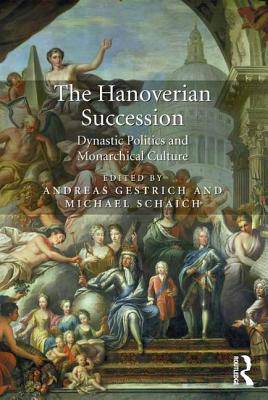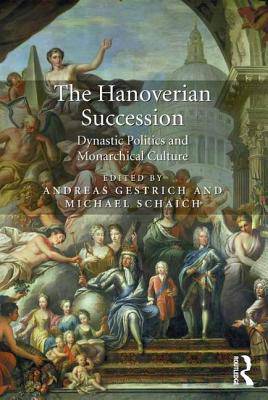
- Retrait gratuit dans votre magasin Club
- 7.000.000 titres dans notre catalogue
- Payer en toute sécurité
- Toujours un magasin près de chez vous
- Retrait gratuit dans votre magasin Club
- 7.000.0000 titres dans notre catalogue
- Payer en toute sécurité
- Toujours un magasin près de chez vous
The Hanoverian Succession
Dynastic Politics and Monarchical Culture
Andreas Gestrich, Michael Schaich
Livre relié | Anglais
290,45 €
+ 580 points
Description
The Hanoverian succession of 1714 brought about a 123-year union between Britain and the German electorate of Hanover, ushering in a distinct new period in British history. Under the four Georges and William IV Britain became arguably the most powerful nation in the world with a growing colonial Empire, a muscular economy and an effervescent artistic, social and scientific culture. And yet history has not tended to be kind to the Hanoverians, frequently portraying them as petty-minded and boring monarchs presiding over a dull and inconsequential court, merely the puppets of parliament and powerful ministers. In order both to explain and to challenge such a paradox, this collection looks afresh at the Georgian monarchs and their role, influence and legacy within Britain, Hanover and beyond. Concentrating on the self-representation and the perception of the Hanoverians in their various dominions, each chapter shines new light on important topics: from rivalling concepts of monarchical legitimacy and court culture during the eighteenth century to the multi-confessional set-up of the British composite monarchy and the role of social groups such as the military, the Anglican Church and the aristocracy in defining and challenging the political order. As a result, the volume uncovers a clearly defined new style of Hanoverian kingship, one that emphasized the Protestantism of the dynasty, laid great store by rational government in close collaboration with traditional political powers, embraced army and navy to an unheard of extent and projected this image to audiences on the British Isles, in the German territories and in the colonies alike. Three hundred years after the succession of the first Hanoverian king, an intriguing new perspective of a dynasty emerges, challenging long held assumptions and prejudices.
Spécifications
Parties prenantes
- Auteur(s) :
- Editeur:
Contenu
- Nombre de pages :
- 304
- Langue:
- Anglais
Caractéristiques
- EAN:
- 9781472437655
- Date de parution :
- 18-03-16
- Format:
- Livre relié
- Format numérique:
- Genaaid
- Dimensions :
- 156 mm x 234 mm
- Poids :
- 603 g

Les avis
Nous publions uniquement les avis qui respectent les conditions requises. Consultez nos conditions pour les avis.






